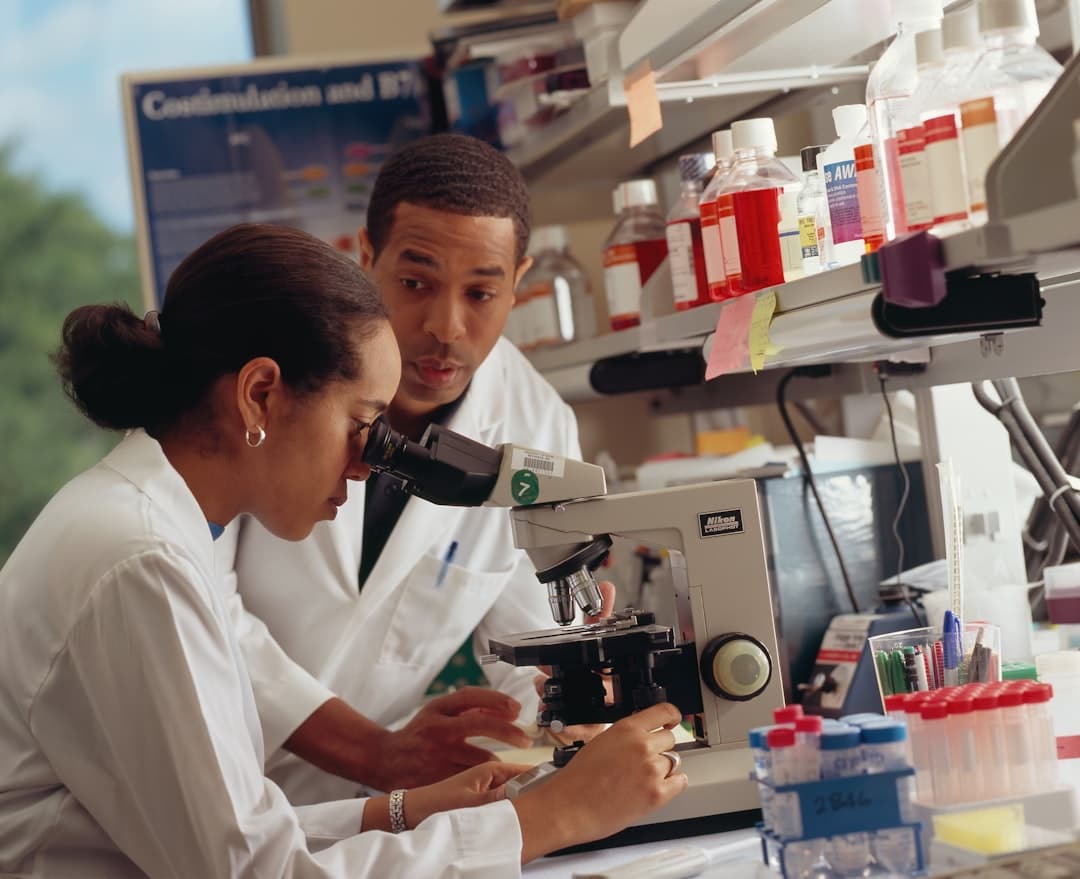Global health equity refers to the principle of fairness in health, where every individual, regardless of their geographical location, socioeconomic status, or demographic characteristics, has the opportunity to attain their highest possible standard of health. This concept is rooted in the understanding that health disparities exist not only between countries but also within them, often influenced by factors such as income, education, and access to healthcare services. The World Health Organization (WHO) emphasizes that achieving health equity is a fundamental human right and a critical component of sustainable development.
As the world becomes increasingly interconnected, the disparities in health outcomes have become more pronounced, necessitating a concerted effort to address these inequities. The COVID-19 pandemic has further highlighted the urgent need for global health equity. The unequal distribution of vaccines and healthcare resources has underscored the vulnerabilities faced by low- and middle-income countries (LMICs).
As wealthier nations secured vast quantities of vaccines, many poorer countries struggled to access even basic healthcare supplies. This situation has sparked a global conversation about the moral imperative to ensure that all populations have equitable access to health resources. The challenge of achieving global health equity is multifaceted, requiring collaboration across sectors, innovative solutions, and a commitment to addressing the root causes of health disparities.
Key Takeaways
- Biotech plays a crucial role in reducing health disparities worldwide by developing accessible medical solutions.
- Access to medicine remains a significant challenge in low- and middle-income countries due to economic and infrastructural barriers.
- Ethical responsibility is essential for biotech companies to ensure equitable healthcare distribution and social justice.
- Innovations in biotechnology offer promising solutions to improve global health equity through affordable and effective treatments.
- Collaborative partnerships are key to sustaining impactful progress and expanding biotech’s reach in underserved regions.
The Role of Biotech in Addressing Global Health Disparities
Biotechnology plays a pivotal role in addressing global health disparities by providing innovative solutions that can improve health outcomes in underserved populations. The field encompasses a wide range of applications, from developing new vaccines and therapeutics to enhancing diagnostic tools and agricultural practices. For instance, biotechnological advancements have led to the rapid development of mRNA vaccines for COVID-19, which have proven to be effective in preventing severe illness and death.
This technology not only has implications for pandemic response but also holds promise for addressing other infectious diseases that disproportionately affect low-income countries. Moreover, biotechnology can facilitate the development of affordable treatments for diseases that are prevalent in LMICs. For example, the use of CRISPR gene-editing technology has opened new avenues for treating genetic disorders and infectious diseases such as malaria and HIV/AIDS.
By harnessing these cutting-edge technologies, biotech companies can create targeted therapies that are not only effective but also cost-efficient, making them accessible to populations that need them most. The potential for biotechnology to bridge the gap in health disparities is immense, but it requires a commitment from both the private sector and governments to prioritize equitable access.
Access to Medicine and Healthcare in Low- and Middle-Income Countries

Access to medicine and healthcare remains a significant challenge in low- and middle-income countries. Many individuals in these regions face barriers such as high costs of medications, inadequate healthcare infrastructure, and a shortage of trained healthcare professionals. According to the WHO, approximately 2 billion people lack access to essential medicines, with many living in LMICs where healthcare systems are often underfunded and overstretched.
This lack of access not only exacerbates existing health disparities but also contributes to preventable morbidity and mortality. The issue of access is further complicated by intellectual property laws that protect pharmaceutical innovations. While these laws are designed to incentivize research and development, they can also lead to exorbitant prices for life-saving medications.
For instance, antiretroviral drugs for HIV treatment can be prohibitively expensive in many LMICs due to patent protections. However, initiatives such as the Medicines Patent Pool aim to address this issue by allowing generic manufacturers to produce affordable versions of patented medicines. By fostering an environment where access to essential medicines is prioritized, we can begin to dismantle the barriers that prevent equitable healthcare delivery.
Challenges and Barriers to Achieving Global Health Equity
Achieving global health equity is fraught with challenges that stem from a complex interplay of social, economic, and political factors. One major barrier is the persistent inequality in resource allocation between high-income and low-income countries. Wealthier nations often invest significantly more in healthcare infrastructure and research than their lower-income counterparts, leading to disparities in health outcomes.
This inequitable distribution of resources is compounded by systemic issues such as corruption, political instability, and inadequate governance in some regions. Additionally, cultural factors can influence health-seeking behavior and access to care. In many communities, traditional beliefs and practices may conflict with modern medical interventions, leading to reluctance in seeking necessary healthcare services.
Furthermore, marginalized populations within countries—such as ethnic minorities or those living in rural areas—often face additional barriers due to discrimination or lack of transportation options. Addressing these challenges requires a multifaceted approach that considers not only the economic aspects of healthcare but also the social determinants that impact health outcomes.
Ethical and Social Responsibility of Biotech Companies
Biotech companies have a unique ethical responsibility when it comes to addressing global health equity. As key players in the development of medical innovations, they must consider the broader implications of their work on global health disparities. This includes ensuring that their products are accessible and affordable for populations in need.
The ethical principle of justice calls for equitable distribution of healthcare resources, which means that biotech firms should actively engage in practices that promote access rather than exacerbate existing inequalities. Moreover, transparency in pricing and collaboration with governments and non-governmental organizations (NGOs) can enhance the social responsibility of biotech companies. For instance, some companies have adopted tiered pricing models that adjust the cost of medications based on a country’s income level.
This approach not only demonstrates a commitment to ethical practices but also fosters goodwill among consumers and stakeholders. By prioritizing social responsibility, biotech companies can play a crucial role in advancing global health equity while simultaneously enhancing their reputations and market positions.
Innovations and Solutions in Biotech for Global Health Equity

Innovations in biotechnology offer promising solutions for advancing global health equity by addressing specific health challenges faced by underserved populations. One notable example is the development of point-of-care diagnostics that enable rapid testing for infectious diseases such as tuberculosis and malaria. These tests can be deployed in remote areas with limited laboratory infrastructure, allowing for timely diagnosis and treatment initiation.
By improving access to diagnostic tools, biotech innovations can significantly reduce morbidity associated with these diseases. Another area where biotechnology is making strides is in vaccine development tailored for LMICs. The use of viral vector platforms and recombinant proteins has led to the creation of vaccines that are not only effective but also stable at higher temperatures, making them easier to transport and store in regions with limited refrigeration capabilities.
For instance, the development of a stable malaria vaccine could revolutionize prevention efforts in endemic regions where malaria remains a leading cause of morbidity and mortality. Such innovations highlight the potential for biotechnology to create solutions that are specifically designed to meet the needs of vulnerable populations.
Collaborations and Partnerships for Sustainable Impact
Collaboration among various stakeholders is essential for creating sustainable impact in global health equity initiatives. Biotech companies can partner with governments, international organizations, NGOs, and academic institutions to leverage resources and expertise effectively. For example, public-private partnerships have been instrumental in accelerating vaccine development during public health emergencies like the COVID-19 pandemic.
These collaborations can facilitate knowledge sharing and resource pooling, ultimately leading to more effective interventions. Additionally, engaging local communities in the development process ensures that solutions are culturally appropriate and address specific needs. Community-based participatory research (CBPR) models allow researchers and community members to work together in identifying health priorities and co-developing interventions.
Such partnerships not only enhance the relevance of biotech innovations but also empower communities by involving them in decision-making processes related to their health.
Future Directions and Opportunities for Biotech in Promoting Global Health Equity
Looking ahead, there are numerous opportunities for biotechnology to play a transformative role in promoting global health equity. One promising direction is the integration of artificial intelligence (AI) and machine learning into healthcare delivery systems. These technologies can enhance disease surveillance, optimize resource allocation, and improve patient outcomes by providing data-driven insights into health trends and needs within populations.
Furthermore, as gene therapies continue to evolve, there is potential for these innovations to address genetic disorders prevalent in specific populations. By focusing on diseases that disproportionately affect certain demographics, biotech companies can tailor their research efforts toward creating targeted therapies that improve health outcomes for marginalized groups. In conclusion, while significant challenges remain in achieving global health equity, the role of biotechnology is increasingly recognized as vital in addressing these disparities.
Through innovative solutions, ethical practices, collaborative efforts, and a commitment to social responsibility, biotech has the potential to make substantial contributions toward a more equitable global health landscape.
In the ongoing discussion about the importance of global health equity, it is crucial to consider how technology can play a role in addressing these disparities.
You can read more about it here. This connection underscores the need for biotech leaders to leverage technology effectively in their efforts to promote health equity worldwide.
FAQs
What is global health equity?
Global health equity refers to the principle of ensuring that all people worldwide have fair and just access to health care services, regardless of their socioeconomic status, geographic location, or ethnicity.
Why is global health equity important in biotechnology?
Global health equity is important in biotechnology because innovations in this field have the potential to improve health outcomes worldwide. Addressing equity ensures that these advancements benefit underserved and vulnerable populations, not just those in wealthy or developed regions.
How can biotechnology contribute to global health equity?
Biotechnology can contribute by developing affordable, accessible, and effective medical treatments, diagnostics, and vaccines tailored to the needs of diverse populations, including those in low- and middle-income countries.
What are some challenges biotech companies face in addressing global health equity?
Challenges include high research and development costs, regulatory hurdles, intellectual property issues, limited infrastructure in low-resource settings, and difficulties in ensuring equitable distribution of products.
What role do governments and international organizations play in promoting health equity in biotech?
Governments and international organizations can support equitable biotech innovation through funding, policy-making, facilitating partnerships, and creating frameworks that encourage affordable access to medical technologies globally.
Are there examples of biotech initiatives focused on global health equity?
Yes, initiatives like the development of affordable vaccines for infectious diseases, gene therapies for rare diseases in underserved populations, and diagnostic tools designed for low-resource settings exemplify biotech efforts toward global health equity.
How does addressing global health equity benefit the biotech industry?
Addressing global health equity can expand markets, foster innovation through diverse research, improve public health outcomes, and enhance the industry’s reputation and social responsibility.
What ethical considerations are involved in biotech and global health equity?
Ethical considerations include ensuring informed consent, protecting vulnerable populations, avoiding exploitation, maintaining transparency, and promoting fair access to the benefits of biotechnology advancements.

